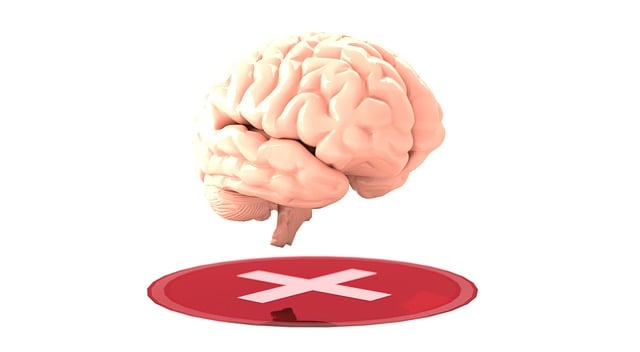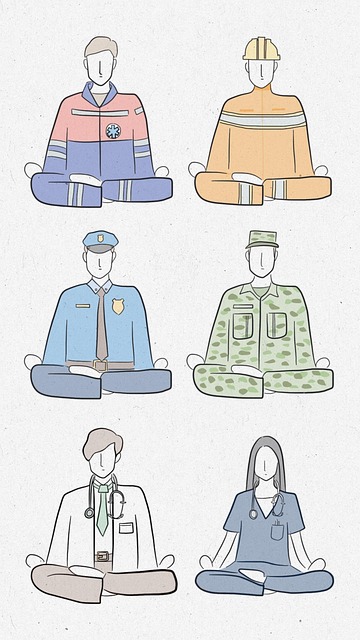Adolescence brings unique emotional challenges making Longmont's adolescents vulnerable to trauma, often going undetected due to their difficulty seeking help. To address this growing need, specialized Longmont Adolescent and Teen Therapy services promote emotional well-being, conflict resolution, and resilience building. Using evidence-based practices like CBT and EMDR, these therapies equip teens with coping mechanisms to process trauma and regain control of their lives, mitigating long-term consequences. A holistic approach involving schools, organizations, and mental health professionals creates a supportive network offering crisis intervention, group therapy, peer support, and cultural sensitivity training to empower teens and restore their sense of safety within Longmont.
“In the realm of mental health, trauma support services are vital for adolescents and teens navigating challenging life experiences. This article explores the unique needs of young individuals in Longmont, delving into specialized therapy frameworks that foster healing. From understanding adolescent trauma to building comprehensive support systems, we uncover strategies for effective recovery. Additionally, we highlight community resources and collaborations that play a crucial role in providing long-term trauma support, ensuring teens in Longmont have access to the necessary tools for resilience.”
- Understanding Adolescent and Teen Trauma: Uncovering the Need for Specialized Support in Longmont
- Building a Comprehensive Therapy Framework: Services and Strategies for Effective Healing
- Fostering Resilience: Community Resources and Collaborations for Long-Term Trauma Support in Teens
Understanding Adolescent and Teen Trauma: Uncovering the Need for Specialized Support in Longmont

Adolescence is a vulnerable period marked by significant emotional and psychological changes. For many young individuals, this stage can be accompanied by traumatic experiences that may go unaddressed due to the unique challenges of identifying and reaching out for help. Longmont, like many communities, has a growing need for specialized support services tailored to adolescent and teen trauma. These services are crucial in helping young people navigate their emotional well-being promotion techniques and conflict resolution techniques, fostering resilience building within this demographic.
Trauma can manifest in various ways among adolescents, from post-traumatic stress disorder (PTSD) to anxiety and depression. The impact of traumatic events on developing minds is profound, often leading to long-term consequences if left untreated. Longmont adolescent and teen therapy services aim to create safe spaces where young people can process their experiences, develop coping mechanisms, and regain a sense of control over their lives. By employing evidence-based practices and offering tailored support, these services play a pivotal role in equipping adolescents with the tools they need to build resilience and thrive despite the challenges they’ve faced.
Building a Comprehensive Therapy Framework: Services and Strategies for Effective Healing

Creating a robust therapy framework is essential for providing effective trauma support, especially within the context of Longmont Adolescent and Teen Therapy. This involves integrating various services tailored to address complex emotional needs. One key strategy is adopting evidence-based therapeutic approaches such as Cognitive Behavioral Therapy (CBT) and Eye Movement Desensitization and Reprocessing (EMDR), which have proven successful in treating trauma-related conditions. These methods enable therapists to guide clients through the process of identifying and modifying negative thought patterns, reducing anxiety, and facilitating healing.
Additionally, a comprehensive framework should incorporate holistic strategies that foster resilience and stress management. Public Awareness Campaigns Development can play a pivotal role in educating communities about trauma and its impact, fostering empathy, and encouraging support for those affected. Stress Management Workshops Organization within schools or community centers equips individuals with tools to cope with stress and anxiety, potentially preventing trauma and promoting overall well-being. Such initiatives contribute to a supportive environment, enhancing the accessibility of care and encouraging teens to seek assistance when needed.
Fostering Resilience: Community Resources and Collaborations for Long-Term Trauma Support in Teens

Building resilience is a key aspect of long-term trauma support for teenagers. In Longmont, Colorado, various community resources and collaborative efforts have emerged to provide adolescents with comprehensive care. These initiatives focus on not just immediate crisis intervention (Crisis Intervention Guidance), but also on fostering coping mechanisms that promote healing and growth. Services like group therapy sessions, peer support groups, and cultural sensitivity training in mental healthcare practice ensure teens feel understood and empowered.
By leveraging these resources, the community equips teenagers with the tools to navigate their trauma and build confidence (Confidence Boosting). Collaborations between schools, local organizations, and mental health professionals have created a supportive network that extends beyond traditional therapy settings. This holistic approach recognizes the impact of trauma on various aspects of an adolescent’s life, aiming to restore their sense of safety and well-being within the community they belong to.
In addressing the pressing need for specialized trauma support in Longmont, this article has highlighted the importance of understanding adolescent and teen trauma. By building a comprehensive therapy framework that incorporates diverse services and strategies, we can foster resilience among our young people. Furthermore, through community resources and collaborations, Longmont can ensure long-term trauma support, ultimately enhancing the well-being and future prospects of its adolescents and teens. For those seeking Longmont adolescent and teen therapy, these insights serve as a guide to available resources, offering hope and healing for those who have experienced trauma.














